Conference Speakers
Plenary Speakers
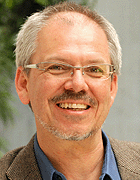
Frank Allgöwer
University of Stuttgart, Germany
Frank Allgöwer is director of the Institute for Systems Theory and Automatic Control and full professor in Mechanical Engineering at the University of Stuttgart in Germany. Frank's main interests in research and teaching are in the area of systems and control with emphasis on the development of new methods for optimization-based control, networks of systems and systems biology. Frank received several recognitions for his work including the IFAC Outstanding Service Award, the State Teaching Award of the state of Baden-Württemberg, the Leibniz Prize of the Deutsche Forschungsgemeinschaft and several best paper awards. At present Frank serves as IEEE CSS Vice-President for Technical Activities and is President-elect of the International Federation of Automatic Control. He is Editor for the journal Automatica and for the Springer Lecture Notes in Control and Information Science book series and serves as Associate Editor or on the editorial board of several further journals. Frank has been organizer or co-organizer of more than a dozen international conferences and has published over 300 scientific articles. Since 2012 Frank serves a Vice-President of the German Research Foundation (DFG).
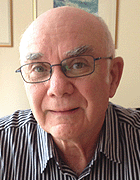
Graham Goodwin
University of Newcastle, Australia
Graham Goodwin graduated from the University of New South Wales with B.Sc. (Physics) 1965, B.E. Honours I (Electrical Engineering) 1967 and Ph.D. 1971. In 2010 he was awarded the IEEE Control Systems Field Award and in 2013 he received the Rufus T. Oldenburger Medal from the American Society of Mechanical Engineers. Other international awards include the 1999 IEEE Control Systems Society Hendrik Bode Lecture Prize, a Best Paper award by IEEE Transactions on Automatic Control, a Best Paper award by Asian Journal of Control, and two Best Engineering Text Book awards from the International Federation of Automatic Control in (1984 and 2005). He received the 2008 Quazza Medal from the International Federation of Automatic Control, the 2010 Nordic Process Control Award, and the 2011 Asian Control Association Wook Hyun Kwon Education Award. He is a Fellow of IEEE; an Honorary Fellow of Institute of Engineers, Australia; a Fellow of the International Federation of Automatic Control, a Fellow of the Australian Academy of Science; a Fellow of the Australian Academy of Technology, Science and Engineering; a Member of the International Statistical Institute; a Fellow of the Royal Society, London and a Foreign Member of the Royal Swedish Academy of Sciences. He holds Honorary Doctorates from Lund Institute of Technology, Sweden and the Technion Israel. He is the co-author of nine books, four edited books, 218 international journal papers and 330 refereed international conference papers. He has successfully supervised 38 Ph.D. students. These hold senior positions in major international universities and industry. He has presented 60 Keynote Addresses at major international conferences. Graham is a Distinguished Professor at Harbin Institute of Technology (China), Northwestern University (China), Zhengzhou University (China) and Universidad Técnica Federico Santa María (Chile). He holds several research grants covering diverse areas including Power Electronics, 3G and 4G Mobile Communications, Ambulance Scheduling, and Artificial Pancreas development. He holds 16 International Patents covering rolling mill technology, telecommunications, mine planning and mineral exploration.

Mark Spong
University of Texas at Dallas
Mark W. Spong is the Dean of the Erik Jonsson School of Engineering and Computer Science and Professor of Electrical Engineering at the University of Texas at Dallas. His research interests are in nonlinear control and robotics. His notable awards include the 2011 Pioneer Award from the IEEE Robotics and Automation Society, the first IROS Fumio Harashima Award for Innovative Technologies in 2007, the IEEE Transactions on Control Systems Technology Outstanding Paper Award, the Senior Scientist Research Award from the Alexander von Humboldt Foundation, the Distinguished Member Award from the IEEE Control Systems Society, the John R. Ragazzini and O. Hugo Schuck Awards from the American Automatic Control Council, and the IEEE Third Millennium Medal. He is a Past President of the IEEE Control Systems Society and a Fellow of both the IEEE and IFAC.
Keynote Speakers
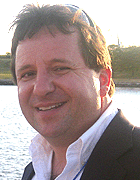
Danny Abramovitch
Agilent Labs
Danny Abramovitch earned degrees in Electrical Engineering from Clemson (BS) and Stanford (MS and Ph.D.), doing his doctoral work under the direction of Gene Franklin. Upon graduation, and after a brief stay at Ford Aerospace, he accepted a job at Hewlett-Packard Labs, working on control issues for optical and magnetic disk drives for 11 1/2 years. He moved to Agilent Laboratories shortly after the spin off from Hewlett-Packard, where he has spent the last 14 years working on test and measurement systems.
Danny is a Senior Member of the IEEE and was Vice Chair for Industry and Applications for the 2004 American Control Conference (ACC) in Boston. He was Vice Chair for Workshops at the 2006 ACC in Minneapolis, for Special Sessions at the 2007 ACC in New York, and for Industry and Applications for the 2009 ACC in St. Louis. He was Program Chair for the 2013 ACC and is General Chair of the upcoming 2016 ACC. He has helped organize conference tutorial sessions on topics as varied as disk drives, atomic force microscopes, phase-locked loops, laser interferometry, and how business models and mechanics affect control design. He served as the Chair of the IEEE CSS History Committee from 2001 to 2010. Danny is credited with the original idea for the clocking mechanism behind the DVD+RW optical disk format and is co-inventor on the fundamental patent. He was on the team that prototyped Agilent's first 40Gbps Bit Error Rate Tester (BERT) and was able to cite a Douglas Adams book in one of his patents relating to that device. Along with his co-author, Gene Franklin, he was awarded the 2003 IEEE Control Systems Magazine Outstanding Paper Award. His favorite paper remains the one prompted by a question from his then 3-year-old son, which showed that the outrigger was a feedback mechanism that predated the water clock by at least a 1000 years. His recent work for Agilent was on future atomic force microscopes and high precision interferometers. He is currently looking at improving the real time signal processing on Agilent's Mass Spectrometers. He is the holder of over 20 patents and has published over 40 reviewed technical papers.
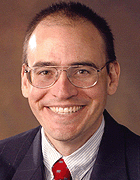
Richard D. Braatz
Massachusetts Institute of Technology (MIT)
Richard D. Braatz is the Edwin R. Gilliland Professor at the Massachusetts Institute of Technology (MIT) where he does research in control theory and its application. He received M.S. and Ph.D. degrees from the California Institute of Technology and was formerly on the faculty at the University of Illinois at Urbana-Champaign and a Visiting Scholar at Harvard University. He has consulted or collaborated with more than 20 companies. Honors include the AACC Donald P. Eckman Award, the Antonio Ruberti Young Researcher Prize, and the IEEE Control Systems Society Transition to Practice Award. He is a Fellow of IEEE and IFAC.
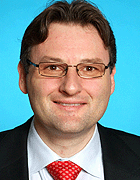
Andreas Kugi
Vienna University of Technology, Austria
Andreas Kugi is head of the Automation and Control Institute (ACIN) and full professor for Complex Dynamical Systems at Vienna University of Technology in Austria. He received the Dipl.-Ing. degree in Electrical Engineering in 1992 from Graz University of Technology, Austria, the Ph.D. (Dr.techn.) and the ”Habilitation” degree in the field of automatic control and control theory from Johannes Kepler University (JKU), Linz, Austria, in 1995 and 2000, respectively. His research interests include the physics-based modeling and control of (nonlinear) mechatronic systems, differential geometric and algebraic methods for nonlinear control, and control design for infinite-dimensional systems. He is involved in industrial research projects with more than 40 companies. These projects cover the fields of automotive applications, hydraulic, pneumatic, and electrical drives, smart structures, and rolling mill applications. He has published about 200 scientific publications, holds about 30 patents, and is the Editor-in Chief of Control Engineering Practice. Since 2010, he is a corresponding member of the Austrian Academy of Sciences.
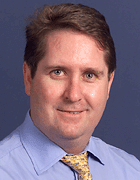
Ross McAree
University of Queensland
Ross McAree is the Joy Global Professor of Mechanical Engineering at the University of Queensland. His research interests are in safety critical control systems, constrained predictive control, state and parameter estimation, and realtime control systems. He leads the Smart Machines Group in the School of Mechanical and Mining Engineering group comprising 2 academic staff, 5 Postdoctoral Research Fellows, 9 research engineers, and 5 PhD students. He received his PhD from the University of Melbourne and from 1993 to 1999 was a postdoctoral research fellow in the Robotics Research Group at Oxford University and a Lecturer in Engineering at Trinity College, Oxford. He joined The University of Queensland in 1999, where he has served as Program Director for Mechatronic Engineering (2002-2005 and 2007-2011, 2013-continuing), Chair of the School of Engineering Teaching and Learning Committee (2007) and Chair of the School of Mechanical and Mining Engineering Research Committee (2009- continuing). In 2013 he was elected a Fellow of the Australian Academy of Technological Sciences and Engineering in recognition of the impact of his work in Automation for the mining industry.
Transition to Practice Award Lecture
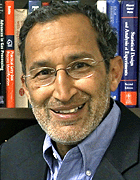
Sirish L. Shah
University of Alberta
Sirish L. Shah is on faculty with the Department of Chemical and Materials Engineering at the University of Alberta, where he held the NSERC-Matrikon-Suncor-iCORE Senior Industrial Research Chair in Computer Process Control from 2000 to 2012. He has held visiting appointments at Oxford University and Balliol College as a SERC fellow, Kumamoto University (Japan) as a Senior Research Fellow of the Japan Society for the Promotion of Science, the University of Newcastle, Australia, IIT-Madras India, and the National University of Singapore. He was the recipient of the Albright & Wilson Americas Award of the Canadian Society for Chemical Engineering (CSChE) in recognition of distinguished contributions to chemical engineering in 1989, the Killam Professor in 2003, the D.G. Fisher Award of the CSChE for significant contributions in the field of systems and control and the ASTECH "Innovations Prize in Oil Sands Research" in 2011. He is a fellow of the Canadian Academy of Engineering (FCAE) and holds a honorary doctorate from Kumamoto University, Japan. He has supervised more than 80 graduate students and published 185 referred journal papers.
The main areas of his current research are process and performance monitoring, system identification and design, analysis and rationalization of alarm systems. He has co-authored three books: "Performance Assessment of Control Loops: Theory and Applications", "Diagnosis of Process Nonlinearities and Valve Stiction: Data Driven Approaches", and a more recent brief monograph on "Capturing Connectivity and Causality in Complex Industrial Processes". Results from Shah's research group have been translated into commercial software for process and performance monitoring. He has consulted widely for the process industry and control software vendors.


